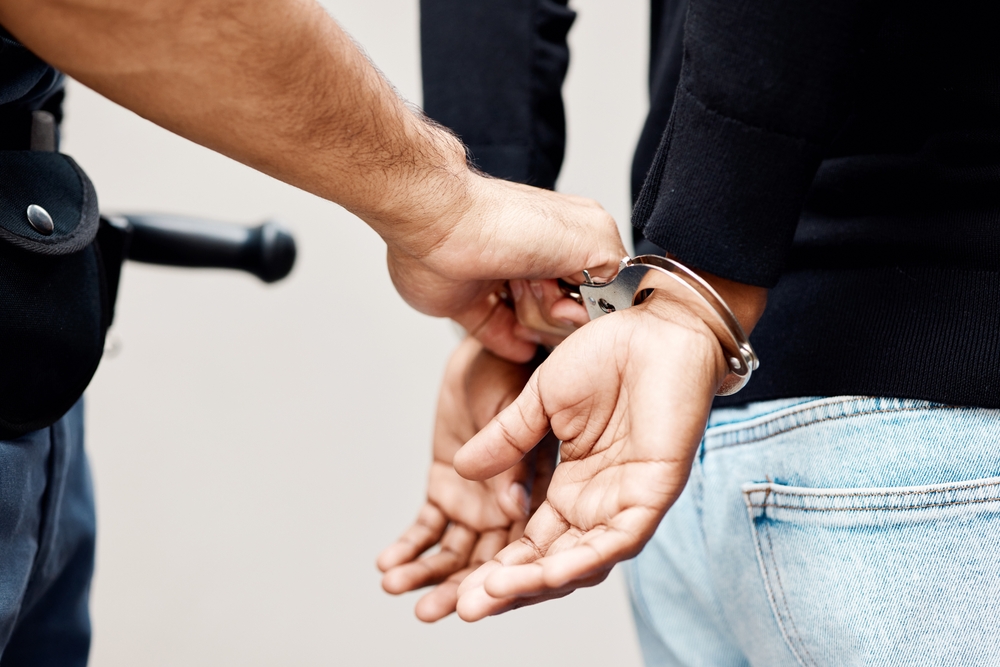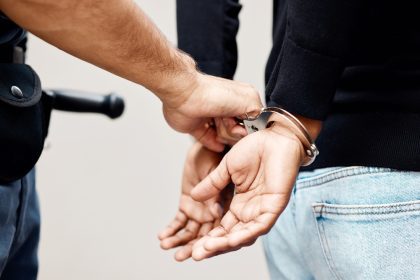In a world where shortcuts often seem tempting, it’s easy to think that certain crimes can go unnoticed or unpunished. However, the reality is that most crimes leave behind a trail of evidence, witnesses or patterns that eventually lead to the perpetrator getting caught. Whether it’s due to advancements in technology, vigilant law enforcement or simply human error, getting away with a crime is becoming increasingly difficult.
The consequences of committing a crime extend far beyond the immediate fear of arrest. Legal fees, ruined reputations and strained relationships are just the beginning. The emotional toll of constantly looking over your shoulder can eat away at anyone, turning what may have started as a momentary lapse in judgment into a lifetime of regret.
This article explores five crimes you should avoid because — quite simply — you will get caught. The risks are not worth the fleeting rewards, and the fallout can be devastating.
1. Identity theft
In today’s connected world, stealing someone’s identity may seem like an easy way to exploit their financial or personal assets. With access to personal information through social media, public databases and phishing schemes, criminals may believe they can adopt someone else’s identity undetected.
However, modern technology is also the reason why identity thieves get caught. Banks and credit monitoring services have become adept at detecting unusual activity. Patterns of transactions, locations and even online behavior can trigger an investigation. Furthermore, law enforcement agencies have specialized cybercrime units trained to track digital footprints. The rise of two-factor authentication, encrypted transactions and fraud alerts has made it incredibly challenging for identity thieves to avoid detection.
How law enforcement tracks identity thieves
Once authorities are alerted to suspicious activities, they can trace IP addresses, monitor unusual financial activity and subpoena records from online platforms. These digital breadcrumbs often lead directly to the criminal, making identity theft a crime that almost guarantees capture.
Victims of identity theft often experience fear and helplessness, knowing that someone else has access to their life. This emotional devastation is something no one should have to endure — especially knowing that the perpetrator will eventually be caught.
2. Tax evasion
Evading taxes is a crime that may seem easy to get away with at first glance. Some may believe that hiding income, inflating deductions or simply ignoring tax obligations is harmless. After all, the IRS is dealing with millions of tax returns every year — how could they possibly notice one person slipping through the cracks?
The answer lies in data analytics and whistleblowers. The IRS has sophisticated algorithms that cross-check data from various sources, including employers, financial institutions and even social media. Any discrepancies trigger an audit — which is a deep dive into financial records. Additionally, the IRS incentivizes whistleblowers to report suspected tax fraud, adding another layer of risk for those attempting to evade their civic duty.
Audits and the consequences of tax fraud
Once an audit is triggered, the likelihood of tax evaders getting caught skyrockets. The penalties are severe — ranging from heavy fines to potential jail time. The IRS doesn’t stop at reclaiming lost taxes; they can also impose penalties and interest that far exceed the original amount owed.
The thought of the government seizing assets, garnishing wages or freezing bank accounts is a terrifying reality for anyone caught in a tax evasion scheme. The personal and financial consequences can destroy lives.
3. Insurance fraud
Insurance fraud, whether it’s staging a car accident, inflating property damage claims or falsifying injuries, is another crime that has become harder to commit without consequence. While some may view insurance companies as faceless corporations ripe for exploitation, these companies have teams of investigators trained to spot fraud.
Insurance investigators examine every detail of a claim, from medical records to vehicle repair histories. They also collaborate with law enforcement to conduct sting operations, which can lead to the immediate arrest of fraudulent claimants. Modern forensics, surveillance footage and witness testimonies can further confirm foul play.
Why insurance fraud always backfires
Not only do insurance companies employ their own detectives, but they also use advanced software to spot patterns in claims. If a person submits multiple suspicious claims over a short period or tries to exploit a loophole, they’re flagged for investigation. The paper trail left behind by medical providers, repair shops and other entities often reveals the fraud.
Beyond legal penalties, getting caught for insurance fraud can lead to the loss of credibility, job opportunities and relationships. The risk of public shame and ruined reputation is one many don’t consider until it’s too late.
4. Shoplifting
What may seem like a minor, victimless crime — shoplifting — is increasingly difficult to pull off in today’s surveillance-heavy world. Most stores, from small businesses to major retailers, are equipped with high-definition security cameras. These systems are often monitored in real-time, allowing store employees or security personnel to catch thieves in the act.
Additionally, many stores have partnered with law enforcement, using facial recognition technology to identify repeat offenders. Even if someone manages to escape the store undetected, the footage is often handed over to the police for future investigations.
The hidden risks of petty theft
Getting caught shoplifting can lead to more than just embarrassment. Legal consequences can include hefty fines, community service or even jail time for repeat offenders. More significantly, a criminal record for theft can hinder future employment opportunities and destroy trust in personal relationships.
The sense of shame and regret that accompanies being caught on camera, publicly accused, and prosecuted is often more damaging than the value of the stolen item. A moment of poor judgment can lead to lifelong repercussions.
5. Internet piracy
In the age of digital media, downloading movies, music or software without paying for it has become one of the most widespread forms of theft. Many people assume that because they’re behind a screen, their actions are anonymous. However, internet service providers or ISPs, track user activity, and copyright holders are increasingly aggressive in going after pirates.
Piracy monitoring agencies work closely with ISPs to identify those illegally downloading content. Once flagged, offenders can face lawsuits, fines and even criminal charges depending on the severity of the infringement.
The legal consequences of digital piracy
Most countries have strict copyright laws, and violating them can lead to significant financial penalties. The entertainment industry has made an example of many individuals, suing them for damages that far outweigh the cost of the original media. Furthermore, pirates risk exposing themselves to malware and identity theft through shady download sites.
The false sense of security that comes with downloading illegal content quickly disappears when a lawsuit or cease and desist letter arrives. The emotional and financial burden can be overwhelming, far exceeding the price of the content in question.
Choose wisely, avoid the consequences
Temptation and opportunity may often present themselves, but the risks associated with committing these crimes far outweigh any potential rewards. Getting caught not only leads to legal repercussions but can also destroy personal and professional relationships, ruin financial stability and leave a lasting mark on one’s reputation.
As society evolves, so too does its ability to catch those who break the law. From digital footprints to surveillance technology, the chances of avoiding detection are slim to none. The best course of action? Avoid these crimes entirely, and live with the peace of mind that comes from making lawful, ethical choices.
Crime may seem tempting in the moment, but when you weigh the emotional, financial, and legal costs, the truth is clear: you will get caught.
This story was created using AI technology.
















